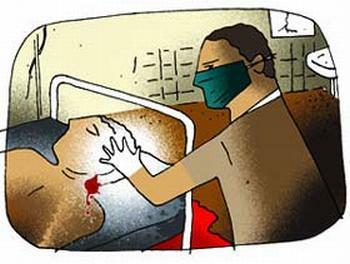
After laying the foundation stone of your financial plan, I am sure most of you will be eager to start building your financial plan.
A majority of you should by now be feeling a bit relaxed, what with all your emergency funds in place. Now let us move to the next block of financial planning: Insurance planning.
You think you are adequately insured but mind you, your insurance planning is not only planning for your life insurance but also for health insurance and property insurance. How many of you can confidently say that all these parameters of your insurance planning are in place? Not many. The amount of insurance is immaterial, if you don't have the right type of insurance.
Many senior citizens buy a ULIP plan as sold to them by their agents. Little do they realise that they do not require life insurance anyways since most of the 60-year olds are retired and post-retirement they are not of much assistance to their family financially, in the first place.
So what is insurance planning?
It is the planning for an adequate amount of insurance. And it definitely does not end with life insurance alone. One needs to also plan for health insurance, disability insurance, and property insurance. These insurances are very important and everyone should try to incorporate them in their insurance planning.
The writer is a certified financial planner and can be reached at dhanplanner@rediffmail.com.

First and foremost, it is very important to know one very important fact. Insurance is not investment and vice versa. Never try to mix the two. Insurance is for risk management and investments are for goal achievements. This golden rule should form the crux of your decision-making when buying insurance polices.
Never buy insurance just because your agent advises you to buy. Try and understand the product, correlate it with your needs and requirements and only then go for it. So how much is adequate? A number of components go into the calculations in finding the adequate amount of insurance. These are:
All these factors help in finding the adequate amount of life insurance. Hence if you have any existing insurance then you only need to buy the additional amount.
NOTE: If you are no more an earning member of the family, that is, if you have retired, then you should not take any life insurance.

A must again with the increasing amount of stress that the younger generation is facing, I would not be surprised if you have already started running huge amounts of medical bills at a young age. A minimum amount of Rs 2 lakh is a must. If affordable increase the amount. Also, if possible try to take individual policies as against family floater plans.
This is because if you have a floater health policy worth Rs 3 lakh, and you fall sick and use up an amount of say, Rs one lakh worth of health insurance, only Rs 2 lakhs will be available for the rest of the year for you and your entire family.
In fact now individuals have an option to go for a top-up, that is, if you have an existing policy with your employer or you have bought it one yourself then you can top it up to Rs 10 lakh. The premium amount works much cheaper. For example, say you have Rs 5 lakh of health insurance (this is the maximum offered by most health insurers today) and you would like to be insured for more than that then you could buy a top-up plan for another Rs 5 lakh.
So if you have a medical bill of Rs 7 lakh then the first Rs 5 lakh are covered by your existing policy and the balance Rs 2 lakh by the top-up policy.
NOTE: It is very important to pay your insurance premium on time and see that it does not lapse especially for individuals who are nearing 60 as after this age very few insurance companies offer health insurance and to get a new one is very difficult. Also, for people who are working and have not taken any other mediclaim policy besides the one their company offers them, remember that once you leave the job and find a new one, you might no longer be covered by that policy.

Again an important insurance policy, especially, for individuals who travel frequently. Accidents can happen anytime and if it leads to any disability then well let's not even think about it. This policy is not an expensive one though. There is also an option for individuals to take this insurance as a rider along with their life insurance.
Compare the premium amounts of a standalone policy and the premium if it is taken as a rider and then decide which one is better.
Property insurance
Your hard earned money has gone in setting up your house. If something were to happen to it, or maybe something is stolen then it is difficult to replace. So it is always advisable to have your property insured. The premium amount is low and hence this amount will not pinch your pockets.
The only hitch is that in India, property insurance is for the market value and not for the replacement value of the property. But this should not be an excuse for not taking property insurance.
Professional indemnity insurance
This insurance policy is a must for all professionals to protect them from any claim arising during the course of their business.
I know it sounds like too many insurances at one time will leave you with no money for other investment planning but the ones mentioned here are amongst the most commonly needed ones. The most important are the life insurance and health insurance and for individuals who are nearing their retirement age or are retired for them health insurance a must. Once these two are in place you can buy the others eventually.
Once we are assured that your risk is managed, we do not have to worry about it anymore. Now we can safely move towards investing and planning to achieve your goals.